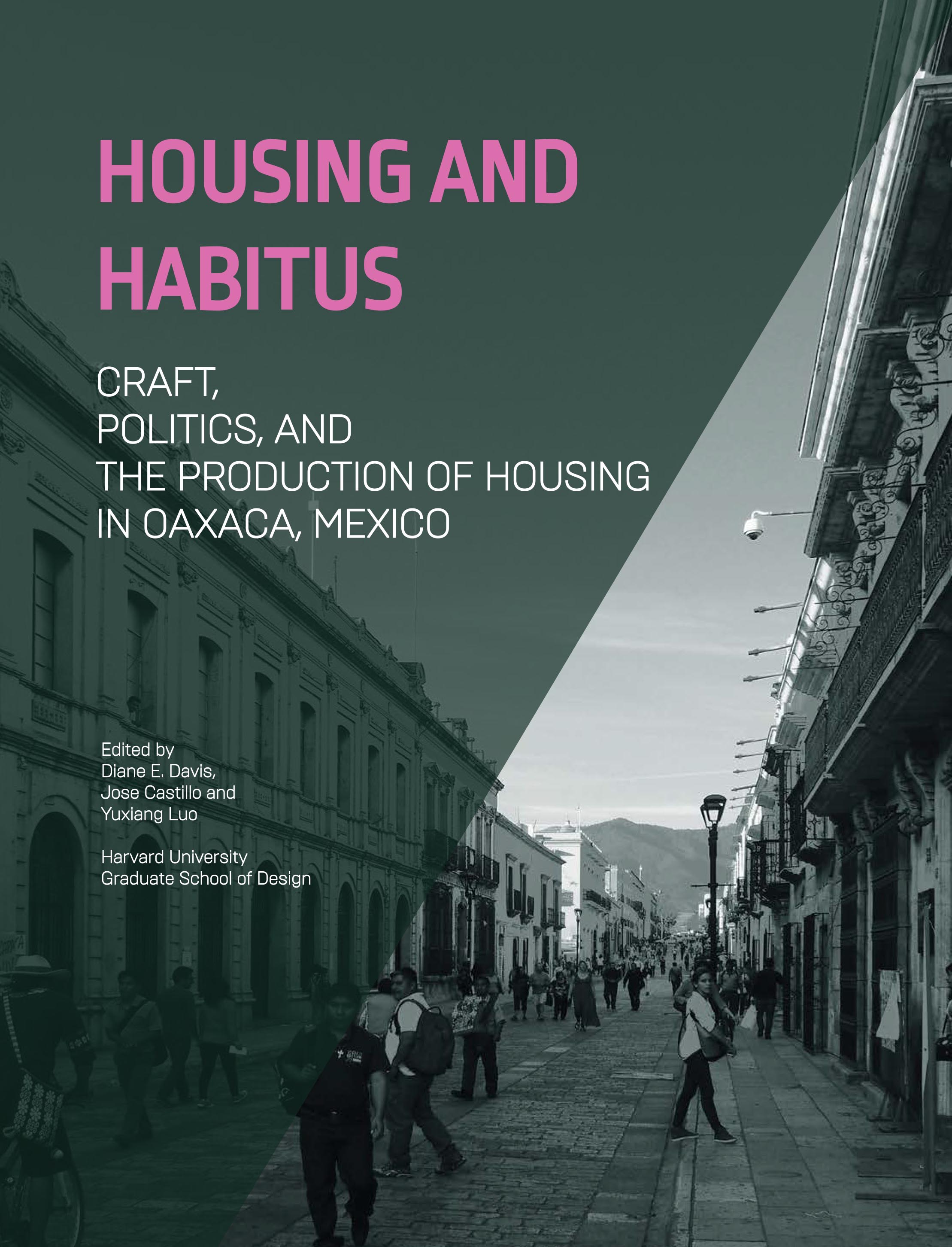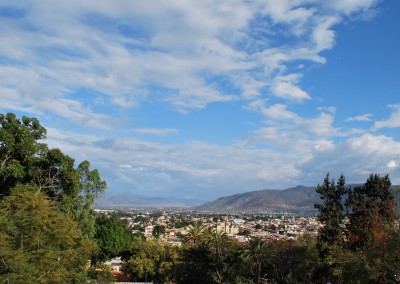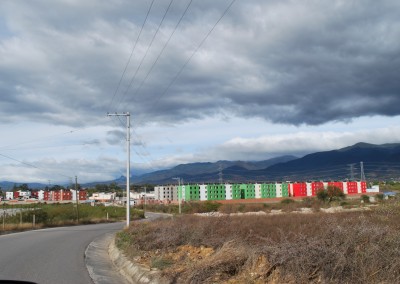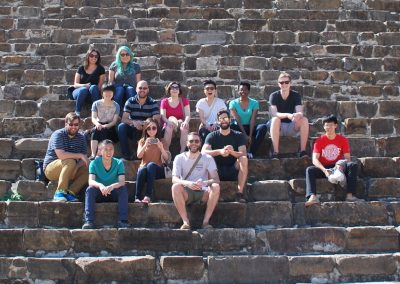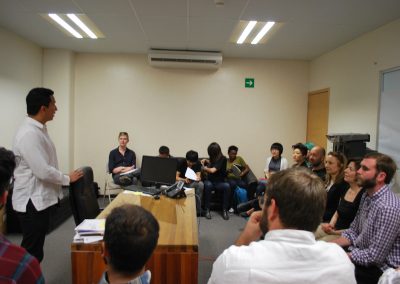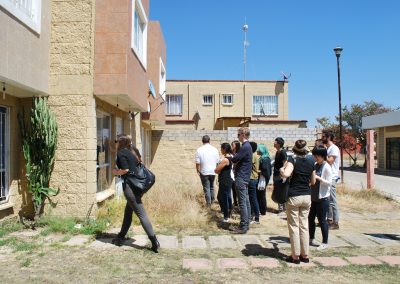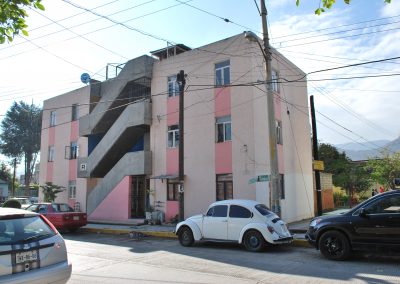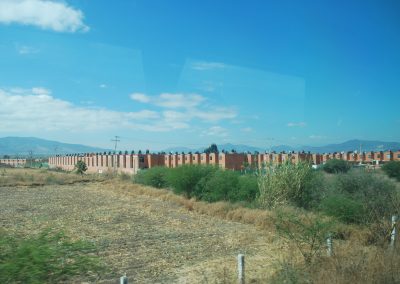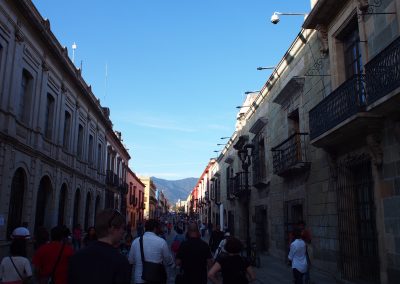Housing and Habitus
Craft, Politics, and the Production of Housing in Oaxaca, MexicoThis is the 2nd studio sponsored by INFONAVIT, the federal agency responsible for the origination of home mortgages for workers across Mexico. Inherent to this work is the imperative to address the challenges of producing sustainable urban housing nationwide, particularly as the country faces grave challenges of urban sprawl. Much of the new housing has been built in the urban periphery where land costs are low, contributing to significant and extensive urban sprawl.
These peripheral areas often lack even the most minimal infrastructure and services, including adequate transportation. In the face of this dilemma, the demand for recently built housing has started to decline, as consumers find it harder to cover mortgage payments in addition to the high costs of commuting. Such conditions create problems for all actors involved, as developers find themselves with over-supplied and undervalued housing, residents find their situation increasingly precarious as housing values decline (often in the face of high rates of abandonment), and local authorities face severe fiscal constraints in providing the infrastructure needed to integrate newly settled areas into the urban fabric. In each case, the isolation of already peripheral residential developments is thus reinforced.
The severity of this situation requires a rethinking of housing policy and demonstrates the need to connect housing supply and affordability directly to location and accessibility. This studio seeks to generate new ideas for meeting goals of densification and fostering sustainable urbanism through the lens of housing.
Site and Context:
The studio will work in the city of Oaxaca, a mid-sized locale in a southern region of Mexico known for its cultural diversity, a strong tradition of indigenous heritage, a local economy associated with small scale craft and agricultural production, and a history of opposition to the modernist project of the “center.” At present, Oaxaca is facing urban sprawl consistent with the challenges seen across Mexico.
In Oaxaca, this is coupled by a range of social and political conflicts that have generated questions over who gains and who loses from current investments in the city as well as the pending plans for its future transformation into a modern metropolis. The studio will use housing as a lens to understand the developmental history of the city while also conceptualizing housing as the key to transforming the built environment, achieving sustainable urbanism, and politically accommodating the social, cultural, and urban priorities of its residents.
In this larger endeavor, craft is the operative concept around which questions of housing and socio-political as well as economic transformation will revolve. In Oaxaca, craft relates as much to indigenous creation as to the construction of art, food, and tourism activities that have – and hold the potential to – inform the material and intellectual production of place. Politics refers to the power structures – whether local, state, or national – that impact the territory and set limits on what is politically possible through regulatory actions undertaken in the form of urban planning and governance. In Oaxaca, the politics of planning and governance must be seen as both barriers and enablers to changes in housing production, and in turn to the city’s economic, social, and political future. The studio will look critically at these inter-related ideas to develop innovative approaches and projects for sustainable urban housing, particularly as it relates to the mission of INFONAVIT to facilitate sustainable social housing nationwide.
